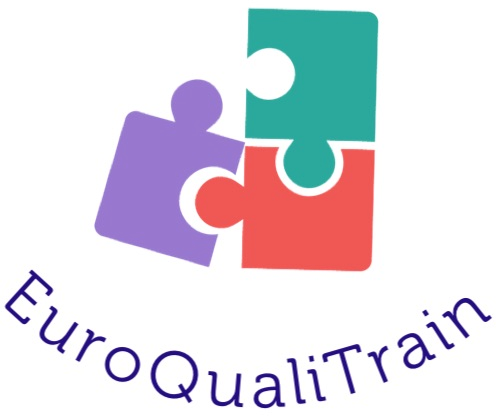EuroQualiTrain – European Qualification and Training is a mobility project based on CRNs European
Development Plan.
Background:
With this project we want to support the aim of reaching a higher rate of employability and help to overcome
social exclusion. Through the improved trainings and new created partner networks, we will help especially social
disadvantaged job seekers to easier navigate in other job markets in Europe. This will help to increase the
mobility in Europe, important aims of the 2020 strategy, overcoming the crisis in Europe.
Objectives :
We aspire to increase the knowledge and experience of our trainers, who will support employers but as well job
seekers with inter-cultural training. We want to increase as an organisation our networks, in order to perform such
trainings not just in Germany but as well elsewhere. The cooperation should help to create among the partners
common curricula, reflecting not just the situation in host but as well sending countries. On the long run we hope
to support the common recognition and certification of inter-cultural skills and trainings in Europe.
Participants:
The project will be open for all trainer and manager of CRN. We will send a total of 13 members abroad, based
on their international experience, their individual development needs and learning goals.
Activities:
The EuroQualiTrain project is composed out of four different activities:
A. Learning assignments for experienced trainers, who want to acquire international teaching experience.
B. Trainings and qualification for less experienced trainers with limited international experience. They will gain
confidence and motivation to go abroad through chosen trainings they will receive
C. Job-shadowing for experienced project manager. The job-shadowing will develop management competences
and let the project manager gain experience from an international partner.
D. Follow-up pilots. The follow-up pilots will be organised at CRN after each activity. The participants will share
their experiences, new knowledge and reflections with all staff members, stakeholders and learners at CRN. The learning assignments will offer easy hand-on methods. The methods contain:
– intercultural training
– digital storytelling
– body movement
– intergenerational training
– dance and art
– non-verbal communication
The job-shadowing will contain project management, social media use, digital tools and intercultural training.
The trainings will contain: community reporter, intercultural trainings, language methods and IKT.
Results and impact:
We expect following impact on our staff:
– increased individual, social and professional competences
– improved employability
– improved motivation in society participation
– increased professional options and new fields of work
– a better knowledge and inside view to different European education systems
– an improved work ethic and motivation
– increased management competences
– up to date knowledge of international approaches in their field We expect following impacts on our organisation:
– A strengthening of our international competences (as already described in the European Development Plan)
– An increased capacity to develop innovative, user based, attractive activities and trainings
– An improved staff and organisation development
– An active internationalization of our organisation, our learners, staff, partners and networks
Long term benefits:
We expect in 2020 a higher quality of our trainings and a higher rate of participants in European mobility. In order
to validate our european mobilities every CRN staff will use the Europass CV and language passport. Our
learners will benefit from the international experience of our trainers and will be motivated to stay in non-formal
education in order to find a lifelong pathway in learning.
-
Results:

